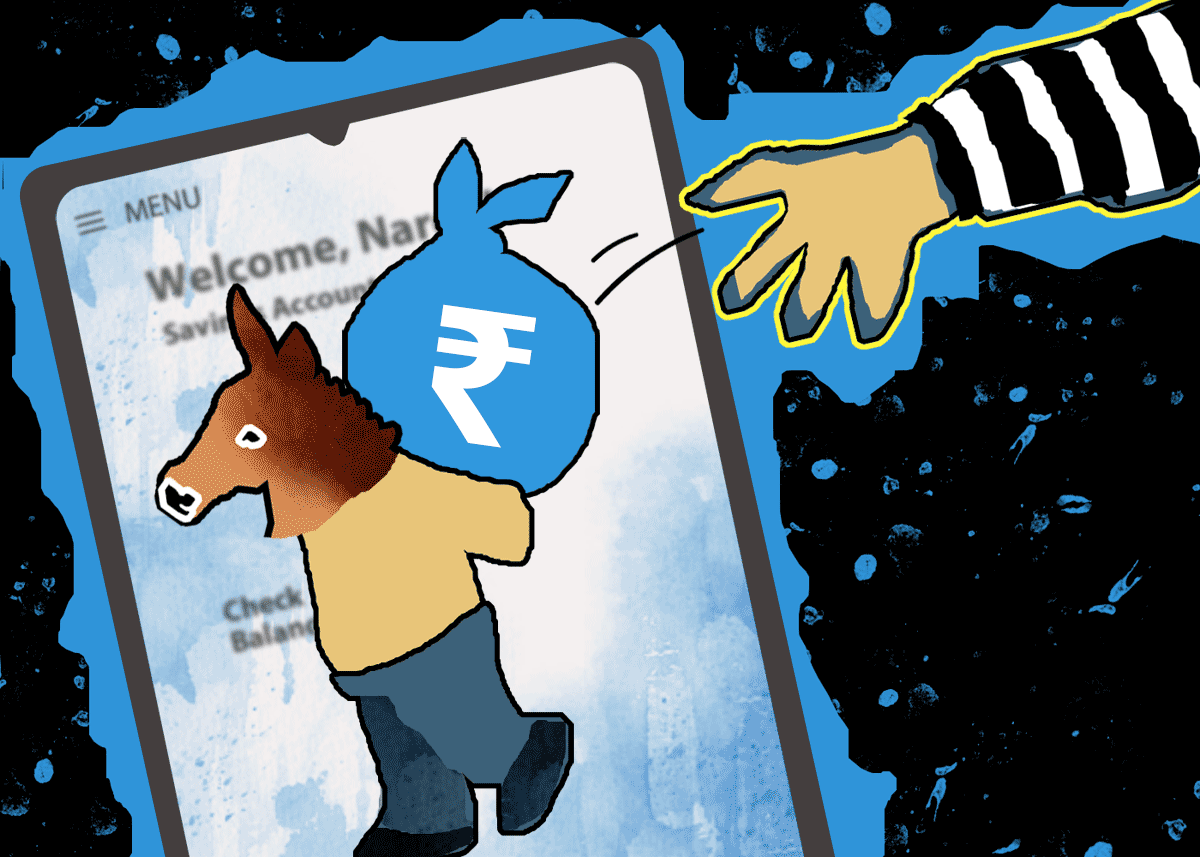'A mule operates someone else's account to transfer illegal money.'

Commercial banks in India have stepped up their control mechanism in taking on new current and savings accounts customers while enhancing surveillance on the existing ones.
This is in the wake of an increase in the number of 'mule accounts' (illegal accounts) in the past six-nine months, bankers said.
In an interaction with managing directors and CEOs of public and private sector banks, Reserve Bank of India Governor Shaktikanta Das asked the lenders to step up efforts to tackle mule accounts and also intensify customer awareness and education initiatives, among other measures, to curb digital frauds.
According to officials in the liabilities business, 0.5 to 1 per cent of the new accounts are mule accounts, which prompted them to step up the control mechanism.
This is the first time bankers are facing frauds of a bigger scale on deposit accounts. Typically, bank frauds are committed on loans like those on the credit card.
According to the RBI data, there were 606 deposit-related frauds in the first half of 2023-2024 as against 551 in 2022-2023.
"The phenomenon of mule accounts was noticed in the early part of 2023-2024, though volumes were not alarming then," said a senior official in a private-sector bank.
"A mule operates someone else's account to transfer illegal money. By the third and fourth quarters, it showed up across the industry. Most of the transactions were in digital mode," the official said.
Bankers said the volumes started increasing and they were 0.5 per cent of the new accounts opened.
For some banks, the number was around 1 per cent or even more. This prompted banks to devise strategies, which included revising the standard operating process for opening accounts.
"Eighty-eighty-five per cent of the accounts were sole-proprietorship current accounts," said another banker.
"These accounts were mostly in rural and semi-urban areas."

Following the alerts, most of the banks started to look at the data from 1997 onwards. It was found most were opened in FY24.
While analysing the data, a particular pattern of transactions were found. Most of these transactions were routed through the UPI (Unified Payments Interface) handle. And the credits were in multiples of 100.
The earlier experience of the banks was that most of the frauds happened with large amounts. So there were large-transaction alerts.
But this logic did not apply to these accounts because you are getting Rs 1,500 or Rs 2,000 UPI credits to your account.
The consolidated sum over the period of the day becomes larger, and most of these accounts were showing behaviour called zero washout.
"It means whatever credit comes into the system during the day gets withdrawn in the evening," said a source.
"Typically, a local kirana store transaction would be of Rs 277, Rs 595, or Rs 783. However, the money credited to these accounts was in the region of Rs 1,500 or Rs 3,000. This was something unusual," the person added.
To enhance due diligence at the time opening accounts, particularly for current accounts, a person at the level of branch manager or someone with 12 to 15 years' experience and knowledge of regulation, particularly compliance, was entrusted with the job, and not a relationship manager.
It would involve taking photographs of the business premises, the proprietor, and also the person who sourced the account.
"The other thing to know is the geography these accounts are in. All the banks have longitude and latitude details in the forms. So it can be verified through an independent agency," a banker said.
Government agencies such as the Indian Cybercrime Coordination Centre are involved in the matter, and the Department of Telecommunications has shared intelligence with banks on mules.
Bankers say the issue has been tackled to a great extent but there is still some distance to be covered.
Feature Presentation: Ashish Narsale/Rediff.com












 © 2025
© 2025